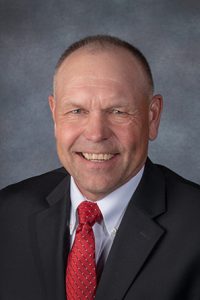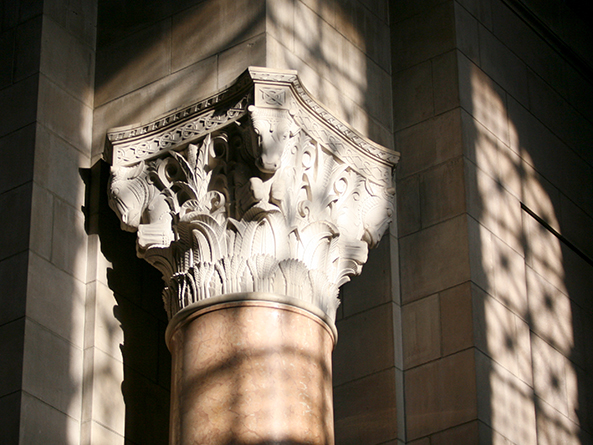Natural resources omnibus clears final round
A Natural Resources Committee omnibus bill that creates a battery collection and recycling program received final approval from lawmakers May 14.
LB36, sponsored by Plymouth Sen. Tom Brandt, includes provisions of seven measures considered by the committee this session.
The amended provisions of LB309, sponsored by Sen. Jana Hughes of Seward, create the Safe Battery Collection and Recycling Act. The act requires battery manufacturers to pay for the collection and recycling of portable and medium format batteries at the end of their useful life.
Beginning in 2028, producers and retailers may not sell any covered battery or battery containing product unless they are a member of a battery stewardship organization approved by the state Department of Environment and Energy. Each BSO is required to submit a battery stewardship plan to the department by Jan. 1, 2027.
Among several other requirements, a BSO must provide for the collection of all covered batteries on a free, continuous, convenient, visible and accessible basis. A BSO is required to ensure statewide collection opportunities for all covered batteries and provide a certain number of collection sites within three years after a plan’s approval.
Finally, the measure creates civil penalties for violating the act and prohibits individuals from improperly disposing of a covered battery.
The provisions of LB344, introduced by Brandt, modify groundwater allocations for municipalities in fully or overappropriated areas.
Beginning Jan. 1, 2026, any new or expanded commercial or industrial user served by a municipal water source that uses more than 25 million gallons of water annually is subject to the controls of an integrated management plan, rule or order and is required to provide a mitigation report to the applicable natural resources district.
Integrated management plans, rules or orders within fully or overappropriated areas may require municipalities to report annual water use and consumption.
The amended provisions of LB459, sponsored by Lincoln Sen. Danielle Conrad, establish the Home Weatherization Clearinghouse within the state Department of Environment and Energy.
The clearinghouse is required to establish an information hub about home weatherization project funding. It also will assist in coordinating efforts by state and local agencies to optimize the execution of those projects.
The provisions of LB480, sponsored by Sen. Barry DeKay of Niobrara, authorize the state Game and Parks Commission to carry out additional projects at Lake McConaughy, the Lewis and Clark State Recreation Area and Niobrara State Park under the Water Recreation Enhancement Act.
The provisions of LB562, introduced by Brandt, increase the maximum fees that the commission may charge for an annual resident motor vehicle park entry permit from $35 to $50 and a temporary permit from $7 to $10.
The maximum fees for nonresident annual and temporary permits are twice the corresponding resident permit fees.
Brandt’s measure also allows the commission to issue two permits for hunting mountain sheep instead of one in an auction that is open to Nebraska residents and nonresidents. The number of additional permits may not exceed the number of those awarded to residents in an initial random drawing.
Additionally, the bill increases the maximum cost for an aquatic invasive species stamp for nonresident motorboat owners from $15 to $30.
LB36 also allows a Nebraska resident or nonresident who is the partner, officer, shareholder or beneficiary designated as the qualifying landowner by a partnership, corporation or trust to qualify for a limited permit to hunt elk.
The amended provisions of LB590, introduced by Columbus Sen. Mike Moser, authorize the state Department of Transportation to establish a mitigation bank or in-lieu-fee program to offset the environmental effects of transportation projects, including impacts to threatened or endangered species.
The measure requires any state agency or other entity that owns a mitigation bank acquired to restore, enhance, preserve or create habitat or wetlands to pay a sum in lieu of ad valorem taxes lost by the county.
The provisions of LB595, introduced by Sen. Jason Prokop of Lincoln, create the Research Excellence Cash Fund. It will support research-based investments in data, data collection and ongoing research critical to the state’s economy, including the Nebraska Mesonet system, a statewide network of weather monitoring stations.
The fund, administered by the University of Nebraska, will consist of money from gifts, grants or bequests as well as transfers authorized by the Legislature.
LB36 passed on a vote of 43-6.


